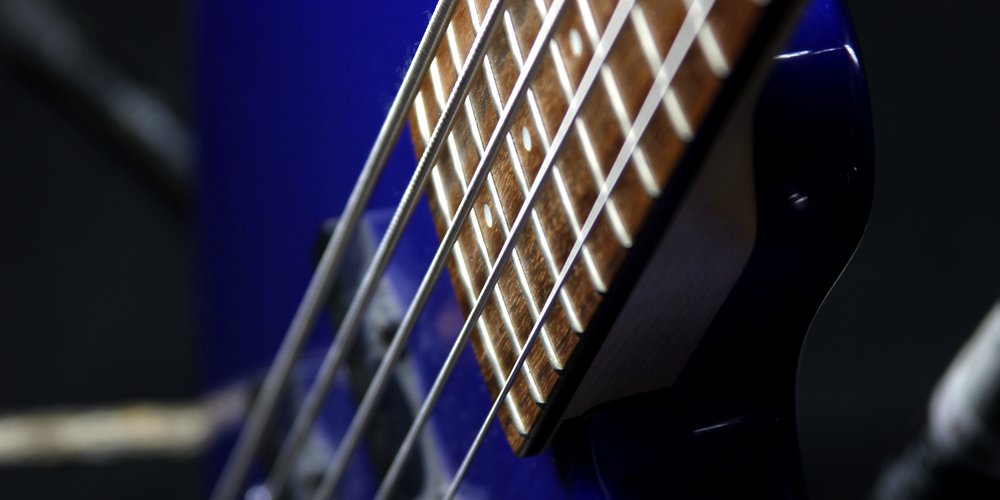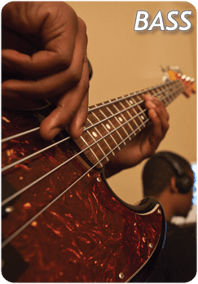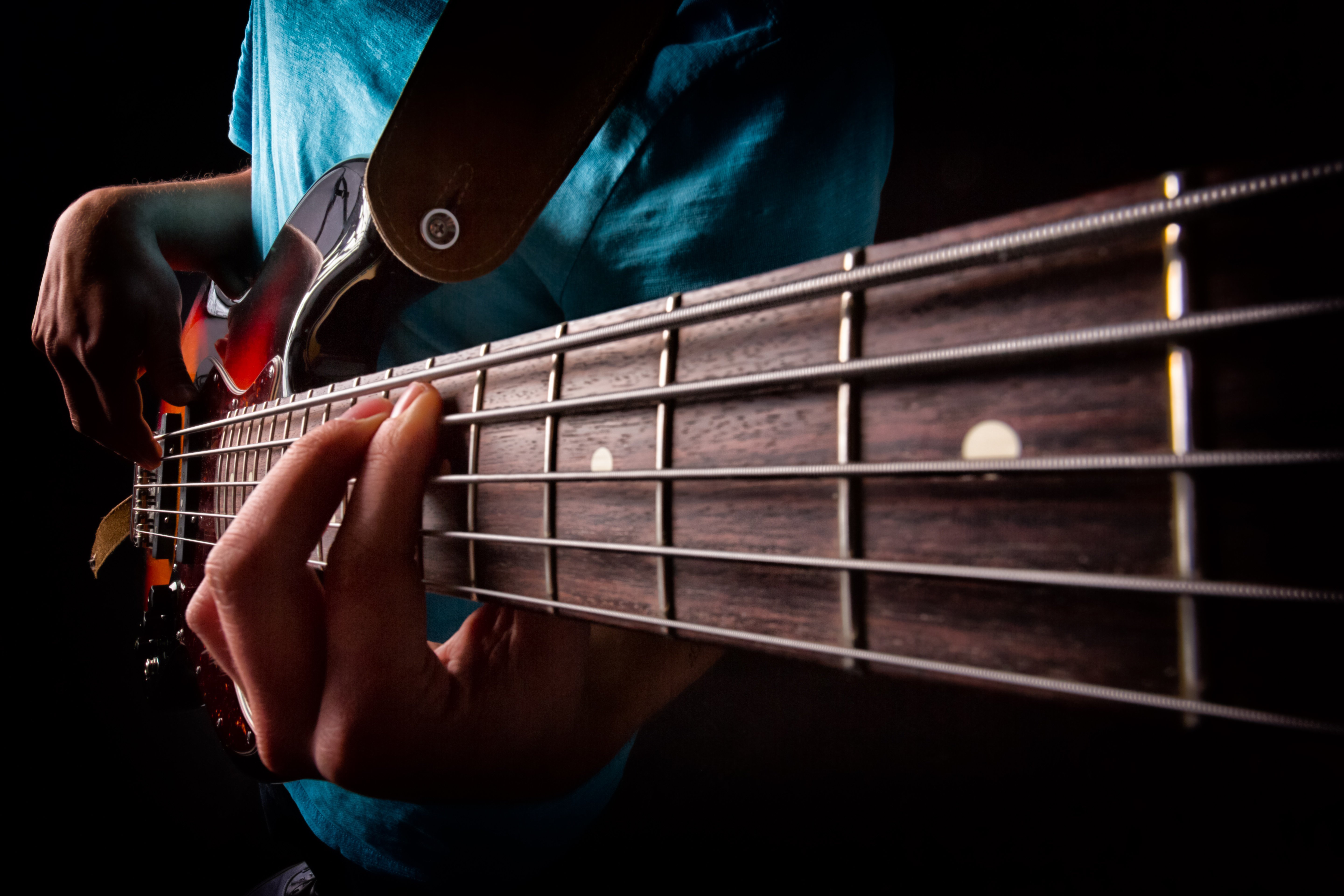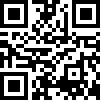| Course Number |
Course Title |
Credits |
| BAS120 |
|
Scales I
Scales I begins with an exploration of currently accepted bass technique; then the major scale is explored in depth including: Modes, Pentatonics, blues scale, arpeggios, and sequences. Students are expected to play regularly, demonstrating not only knowledge of the scales, but also knowledge of how to use those scales to create music. |
1 |
| BAS130 |
|
Reading I
This class focuses on two areas: rhythm reading and note reading. In the rhythm reading section, the students start with eighth note based rhythms in both straight eighth and swing eighth feels. By the end of Level I, the student will be working with complex combinations of triplet and sixteenth note figures. In the note reading section, the students start off with whole note and half note exercises that quickly advance to the complex level of rhythm reading. |
1 |
| BAS140 |
|
Styles I
This is a class that focuses on the fundamentals of Swing jazz and Latin jazz. Elements of swing include: Walking, comping, and soloing. Elements of Latin include: Bossa pattern, Samba Pattern, comping, and soloing. Classic pop songs that derive their grooves and arrangements from these styles are explored, specifically rock and folk. There is an introduction to Bach cello suites, both from the perspective of style, as well as technique. |
2 |
| BAS910 |
|
Group Lesson I
Students receive one half hour of group instruction weekly to address areas of technique or theory for which they require assistance. |
0.5 |
| INT100 |
|
Performance I
This course is an interdisciplinary live performance class based on standard introductory level repertoire for R&B, Blues, Rock and Pop styles. Students perform on stage weekly in a live interactive ensemble format with voice and rhythm section instrumentation that emulates professional gigging scenarios. The emphasis is on execution of melody, rhythm, chords, form, and improvisation. Materials such as sheet music, charts, play along tracks, lyrics, video tutorials are provided via Canvas Learning Management System. |
4 |
| INT105 |
|
Skills Lab
This lab course is designed to help the student gain awareness of “soft skills” such as behavior, habits, work ethic, etc., in a fun and engaging way. Students will complete the course with a better understanding of their own strengths and areas in need of improvement. Students will gain tools to help them succeed in their academics and beyond. |
1 |
| INT134 |
|
Music Appreciation
This course is designed to expose students to a broad spectrum of musical ideas, concepts, and genres. Emphasis is placed on studying those musical concepts that hold true for all styles of music (form and structure, counterpoint, melodic and harmonic content). Genres covered include: Middle Ages; Renaissance; Baroque; Classical; Romantic; 20th Century; Jazz; Rock. |
1 |
| INT145 |
|
Music Theory Essentials I
This class covers the basic elements of music theory, ear training and notation. Diatonic harmony, major and minor key signatures, triads and 7th chords, scale harmonization, meters, basic rhythmic notation, and chord symbol conventions. Students will practice recognizing fundamental musical elements by ear. Basic keyboard skills will be covered including chords, scales and reading. |
3 |
| Required Credit Hours |
13.5 |










